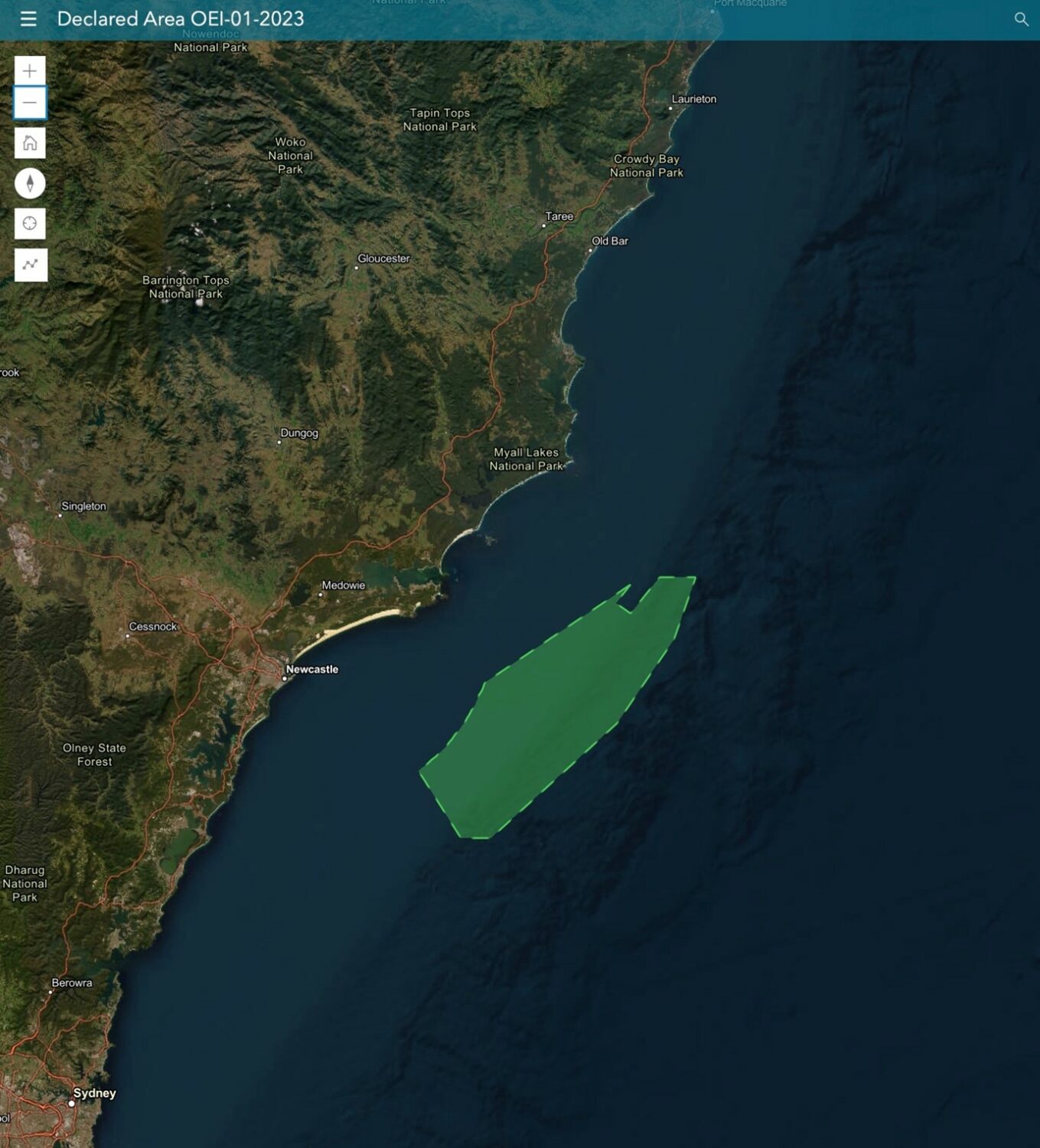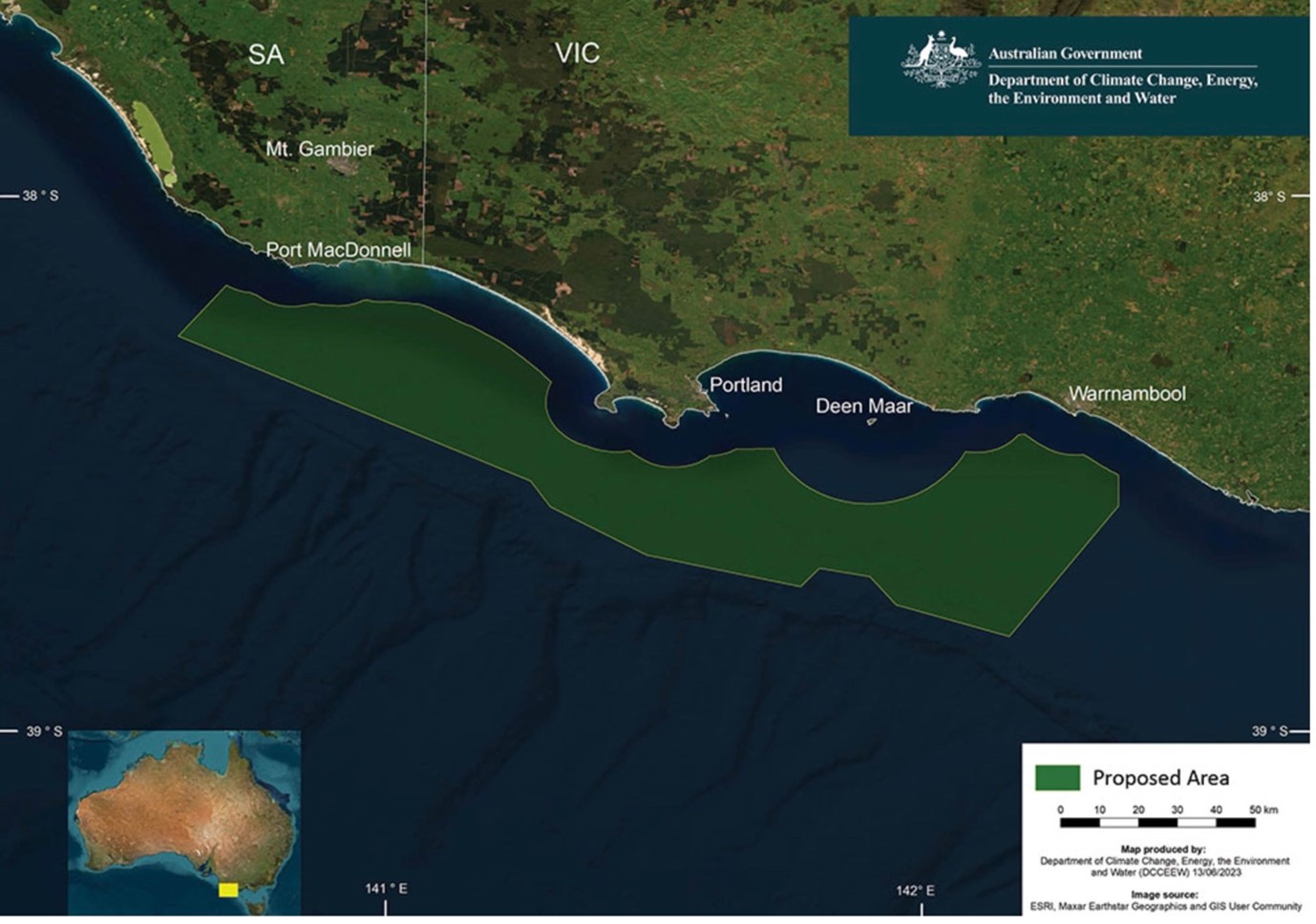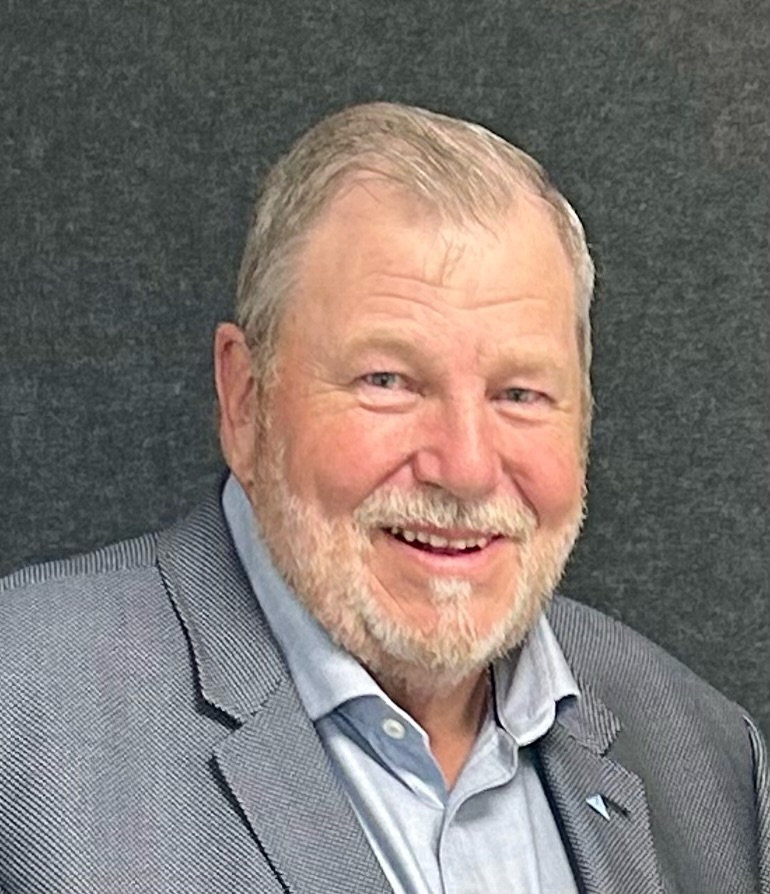
AFTA Annual Chair’s Report – September 2023
AFTA is holding the next full Board meeting in Sydney on October 18th; following that meeting, I will be in Perth on the 19th, meeting with Libby Mettam, Ben Patrick (Halco) and our AFTA local members to work through the Demersal closures affecting so many small businesses not just tackle shops.
In a positive vein, following their industry recognition award at AFTA 2023, the Western Australia team, Tim Farnell, Brian Marshall and
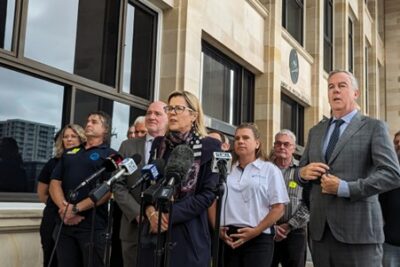 Ash Ramm, have continued their efforts representing the recreational fishing industry on the WA Demersal Cutbacks issue. They met with WA Opposition leader Libby Mettam, following which a Grievance Debate against Minister Don Punch was held in the WA Parliament on Thursday, September 13, 2023.
Ash Ramm, have continued their efforts representing the recreational fishing industry on the WA Demersal Cutbacks issue. They met with WA Opposition leader Libby Mettam, following which a Grievance Debate against Minister Don Punch was held in the WA Parliament on Thursday, September 13, 2023.
The Western Australian Parliament Hansard of the Debate is:
WEST COAST DEMERSAL SCALEFISH RESOURCE
Grievance
Note: Full Video of the Grievance Debate is available here: Starting at 9:16am
MS L. METTAM (Vasse — Leader of the Liberal Party) [9.19 am]: My grievance is to the Minister for Fisheries, and I thank the minister for taking my grievance. Today, I will speak about the lengthening of the demersal fishing ban in the West Coast bioregion, the allocation of the remaining 375 tonnes of demersal fish that can be caught annually, and the impact of these decisions on recreational fishers and small businesses operating within WA’s recreational fishing industry.
I begin by reaffirming the support of the Liberal Party and the shift Nationals WA for efforts aimed at recovering our demersal scalefish stocks along with other domestic fish sources along our shores. As Liberals, a core tenet of our value statement is to preserve our current environment for future generations to enjoy. There are over 750,000 recreational fishers in Western Australia, and I have no doubt that their children and their children’s children will want to fish, just as the generations who have come before them did. The problem with this government’s approach is that it goes above and beyond what is required at the expense of local economies and jobs—in this case, our local chartering businesses, tackle shops, regional communities and recreational fishers. Second to this, several industry peak bodies and small businesses are alarmed at how the WA government has managed this process and how the allocation of demersal fish tonnage has been decided. Unfortunately, it is the perfect example of the hubris that we have seen all too often with this government barrelling ahead with policy rollouts without heeding the warnings of industry professionals and those impacted most.
I refer to charter businesses. The minister’s decision to offer only 21 charter operators within the West Coast bioregion a split of the 6000 available demersal fishing tags has practically destroyed the livelihoods of the other 78 operators across the region. The Department of Primary Industries and Regional Development’s allocation method, which is based on each business’s catch figures over the last five years, completely rules out the smaller operators whose businesses are based on a more intimate model. DPIRD claims its aim was to ensure that a viable charter fishing industry could be maintained. Meanwhile, small operators have been squeezed out of the market in favour of larger, more established operators, many of which are in the metropolitan region.
Another consequence of this decision has been that charter businesses that have taken it upon themselves to diversify the types of fish they catch so that they can play their part in conservation have also been punished. If they have worked to lower their demersal fish catch, they could now be missing out completely. This demonstrates a gross misunderstanding of how these smaller operators actually conduct their business. Many of these operators focus on providing great experiences for their customers rather than catching large amounts of fish. Small operators are being affected, such as Kristin McCarthy, who has been forced to pack up shop and relocate to the Kimberley because these changes forced her out of the midwest. Kristin took time off in 2020 to start a family before resuming her charter operation. During that time, she purchased a new boat to provide a better experience for her customers. Given that Kristin was not operating her business while she was raising her family, of course, her five-year average was lower. As a result, she received an allocation of zero tags, effectively dooming her business. Considering that many of Kristin’s clients book her services to partake in the demersal fishing experience, no allocation means no business. That means no bookings, no income, and no opportunities to continue employing local staff.
The six-month demersal fishing ban is having a significant impact on tackle shops right across the west coast bioregion. I have received reports from tackle shops that are experiencing a decline in customers of 40 or 50 percent, and, at times, over 85 percent. My electorate of Vasse is home to several tackle shops that have been impacted by these changes. Nigel Hoffman is the owner of Geographe Camping and Tackle World. He has been a Busselton local for 23 years and has owned a small business for 19 years. He employs six staff, some of whom have young families of their own. Nigel is one of the lucky ones who has managed to keep his business afloat. Others within the industry are not as fortunate.
Many of these tackle shops are barely making enough to cover the rent and wages, making operating in this environment impossible. Staff are reporting that boat ramps are empty, rec fishers are not bothering with the squid and whiting, and confidence within the industry is at an all-time low.
The changes made by this government have led to a great deal of fear and anxiety about the viability of this industry, and many business owners who can get out are seriously contemplating making that decision. The flow-on effect does not just impact staff, business owners, or recreational fishers themselves. Several regional communities up and down the West Coast bioregion rely on the fishing tourism industry to keep their towns alive. Recreational fishers contribute dearly to the economies of regional coastal communities. They need to refuel their boats and vehicles, they stop for a feed at the local pub or fish and chip shop, and they book accommodation at caravan parks or local hotels. Important fishing competitions have also been impacted by these changes. If those competitions are canceled, it can seriously damage the local economies of participating coastal towns. The Kalbarri Sports Fishing Classic was canceled this year due to the bans. Usually, that competition would bring over 50 boats and 200 competitors to town, with a boost to the local economy of an estimated $ 100,000. It is a huge kick in the guts for a community like Kalbarri to lose such an important stream of income, especially while it is trying to recover from the impacts of cyclone Seroja. The point I have the most difficulty with is the fact that the industry is telling me there is a better way to do this. No one is arguing against the need to conserve our demersal fish stock, which continues to increase, but people with years of experience in the industry are telling me that there must be a better way. The government and bureaucracy must work closer together with industry to ensure that a solution is delivered that avoids destroying small businesses and communities across the west coast bioregion.
I again thank the minister for taking my grievance.
MR D.T. PUNCH (Bunbury — Minister for Fisheries) [9.26 am]: I thank the member for Vasse for her grievance. It is a seriously important issue. I am a little disturbed that this is one of the few occasions that members opposite have raised this issue with me. I cannot actually recall a parliamentary question on it. I do recall that last year the Leader of the Opposition, I think, raised a grievance, but as a point of debate, it has not figured prominently for such an important issue. I note that Hon Colin de Grussa still has not requested a briefing from the government on the science or rationale for the decisions that have been made, which I think is a serious indictment on the approach of members opposite to how we deal with what is a very difficult issue.
This has a long history. I will quote Colin Barnett. In 2009, during question time, he said —
There is no doubt that if things are left as they are, the ability of future generations to go out in a boat and
catch demersal fish will not be there….
I have read some of the reports. Do we sit back and say, “Too hard. We’ll do nothing. We’ll let those species
become, if not extinct, in such limited numbers and so rare that fishing will no longer be a major recreational
and sporting activity in this state”? … Some of the species are long-life; they do not reproduce until they are
of a substantial age—10, 15 or 20 years old. It is not hard to imagine therefore that as fish are caught and
young stock are taken away, we will lose breeding stock.
That was the member for Vasse’s leader in 2009. In 2008, Jon Ford stopped commercial fishing between Lancelin and Mandurah and negotiated with Recfishwest a four-month closure period. When members opposite came into office, they did not do anything; they left it for a year and then they reduced the closure period to two months. That has caused the problem that we have today. Everybody has agreed, as the member has just agreed, that there is a fundamental sustainability problem with these fish, and the sustainability problem is that we have lost the older breeding demographic and we are very susceptible to any impacts that might come from climate or breeding impulse changes that will have an impact on these fish into the future.
When Recfishwest, the Western Australian Fishing Industry Council and Marine Tourism Western Australia came to me and said that we had to reduce the recovery benchmarks by 50 per cent down to 375 tonnes, that was a serious decision by them, and it was based on their evaluation of the science. I accepted that recommendation and, in so doing, I accepted the integrated fisheries management arrangements that were put in place by the member’s minister, Hon Norman Moore, which set the division between recreational fishers, commercial fishers and the charter boat sector. That does not mean to say that I will not be reviewing those arrangements at some point in the future, but now is not the time while we are working particularly with the commercial sector to reduce its allocation.
It is a very difficult situation; I understand that. It is a difficult situation because if the fish catch is 375 tonnes, who do we distribute the fish to? We have accepted the previous Liberal–National government’s initial decisions around how that fish is distributed. If we take from the commercial sector to try to increase the amount of time recreational fishers have on the water, we start to undermine the commercial sector. If we do the same with the recreational sector to support the commercial sector, we have the impacts the member talked about. The question the member has to answer is: are we going to take from recreational fishers to support the commercial sector; are we going to take from the commercial sector to support the recreational fishing sector or are we going to abandon the recovery plan and let people increase the amount of take overall? I have not heard a position from the member about that, knowing that this is a difficult situation for everybody.
I do take note of marine tourism charter operators. It has been a very difficult situation for them. There are 97 or so licence holders, of which about half were involved in the commercial fishery. Not all of those 97 licence holders were involved in demersal fisheries. We have made arrangements that has meant that around 85 per cent of the available tags have gone to those who are most reliant on the demersal fishing sector, recognising that this is a difficult decision. Absolutely, it is a difficult decision and that is why we made the commitment to at least try to broaden the arrangements about cooking on board. We have tried to work with the market itself to encourage people to switch their fish, because we cannot keep the pressure on the demersal sector. The marine charter sector was taking around 70 tonnes, which is 30 tonnes above the initial benchmark of 40. We had to reduce that benchmark, based on the Liberal–National government’s integrated fisheries management frameworks, to 20 tonnes. There is a big drop. It was climbing; that was the issue. With pressure on fewer fish, it was climbing.
I know that the tackle shops have had a difficult time. I visited a tackle shop and they told me that the fact that we have made beach fishing available has been a bonus for them. They have seen a significant take-up of tackle for the beach fishing sector. I will quote Liza Harvey. Liza spoke to me just after she resigned from Parliament, and she talked about the pressures on the tackle industry. She said — I don’t think it’s all completely linked to the fishery closure —
This is in The West Australian —
This I think it’s (also) a change in people’s buying patterns …
A consideration being the surge in cost of living and the impact of the interest rate hikes … All of the present
data that indicates people are winding back on their discretionary spending in eating out and recreational
pursuit.
And while households —
Ms L. Mettam: No, no. Lots of —
Mr D.T. PUNCH: This is Liza Harvey. Sorry, member.
The DEPUTY SPEAKER: Member.
Mr D.T. PUNCH: I am quoting your former leader, who is a stalwart in the tackle industry from The West Australian
—
And while households reaching deeper into their pockets to stay afloat, so are business owners to keep a roof
over their heads.
She went on. She recognised that there was a changing demographic within the fishing sector and a changing cost structure.
Ms L. Mettam: I think you’re misrepresenting her views.
Mr D.T. PUNCH: I have read her views from The West Australian and this is not a debate, member. I am replying to the member’s grievance. This is a very difficult situation. The member has not come up with an alternative that supports sustainability and supports an appropriate allocation between the three major sectors. This is a very difficult one and if there is no sustainability in the fishery, there is no business for anybody. It is a tough decision, and I am not going to respond to a populist view.
Offshore Windfarms UPDATE
Hunter Region NSW
Congratulations to the SA Government and, in particular, Clare Scriven, Minister for Primary Industries and Regional Development, for submitting to the Federal Government that South Australia not be included in the Commonwealth’s proposed offshore wind farm zone that runs from Warrnambool in Victoria to Port MacDonnell. We anxiously await the government’s decision …
However, it is a very different situation in the Hunter/Central Coast Region of NSW, where Minister Chris Bowen has declared the zone for windfarm leases.
Following public pressure over a lack of meaningful consultation, Minister Chris Bowen met with a select group in Nelson Bay on September 19th. AFTA was represented at the meeting by local Tackle World owner Brent Hancock.
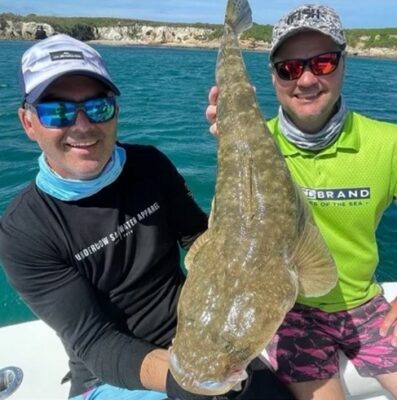 In Brent’s own words, to sum the meeting up, it was a disappointment. The minister stated the recreational fishing industry would not be overly impacted. Brent argued that Port Stephens generates over $19m in 3 weeks from the marlin fishery and competitions in the grounds where the farms will be located.
In Brent’s own words, to sum the meeting up, it was a disappointment. The minister stated the recreational fishing industry would not be overly impacted. Brent argued that Port Stephens generates over $19m in 3 weeks from the marlin fishery and competitions in the grounds where the farms will be located.
At the same time, on September 19th, Ted O’Brien, Shadow Minister for Climate Change & held an open meeting at the Newcastle Port Stephens Game Fishing Club, Shoal Bay.
This declaration was quietly rushed through on July 16th 2023, with minimal public consultation. The declared area off the Hunter covers 1,854km2 and extends from offshore of Norah Head in the south to Port Stephens in the north and covers all the major billfish areas. The exclusion areas alone will heavily impact the fishery.
Lease proponents can submit feasibility licence applications between August 8th 2023, and November 14th 2023. The NSW Governments engagement on windfarms is available here.
Illawarra Region NSW
The proposed lease area for the Illawarra region has now been published, with the government seeking feedback on the area. The proposed area extends from Wombarra in the north to Kiama in the south and is at least 10km from the coast proposed for future offshore renewable energy projects.
Just like the Hunter Zone area, this is right across the prime fishing areas. Given the proximity to the shore, the impacts on recreational fishing will be devastating.
AFTA has been working with Tricia Beaty of the NSW Professional Fishers Association and Veronica Papacosta Seafood Industry Australia, sharing research on the impacts of offshore windfarms on marine life.
The NSW PFA research is available here.
Submissions opened on August 14th and close on October 16th 2023.
SA Southern Ocean & Victoria
The government is seeking feedback on the area proposed for future offshore renewable energy projects in the Southern Ocean Region. The region extends from Warrnambool in Victoria to Port MacDonnell, South Australia, with submissions closing August 31.
In Summary
Just a reminder that the elections in the Northern Territory (August 24th 2024), the ACT (October 19th 2024) and QLD (October 26th 2024), I ask AFTA members to contribute policy ideas and opinions on the positive and negative actions of the relevant government to allow a truly representative industry proposal to all political parties in each state.
The AFTA directors provided great insight, but more information is needed. AFTA work with the various State Peak Bodies, many of which are AFTA members. However, we need your direct input as industry members whose livelihood and business development require more action than those who just fish.
So, Tight Lines and Full Tills
Bob
